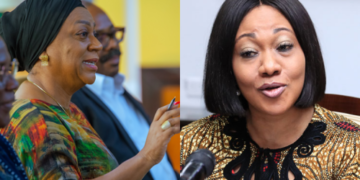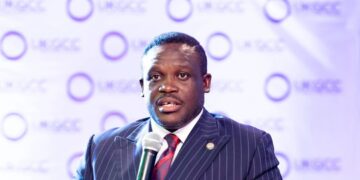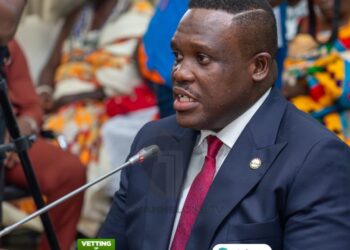 Amid mounting tensions within the governing National Democratic Congress (NDC), grassroots members are voicing strong objections to the possible appointment of Edmund Yirenkyi Fianko as the new Director General of the National Communications Authority
Amid mounting tensions within the governing National Democratic Congress (NDC), grassroots members are voicing strong objections to the possible appointment of Edmund Yirenkyi Fianko as the new Director General of the National Communications Authority
(NCA).
While Fianko is undoubtedly qualified for the position, having built a distinguished career in electronic communications and regulatory affairs, his past role in the closure of Radio Gold and other stations has become a
contentious issue among the party’s base.
Fianko, who was involved in shutting down several radio stations during the New Patriotic Party (NPP) administration, is viewed by many within the NDC as someone who could do more harm than good if appointed to such an influential position. Critics argue that empowering him now, after his actions against media outlets linked to the NDC, would exacerbate the party’s division and betray the grassroots who worked tirelessly during the campaign. For these members, appointing Fianko feels like a slap in the face to the party’s loyal supporters, especially when other highly qualified individuals within the NDC are being overlooked.
The growing discontent has led to talks of protests, with some suggesting that they will take drastic action if Fianko’s appointment is confirmed. Drawing on past instances where supporters of the NPP forcibly removed a national security coordinator they disapproved of, these members warn that the National Communications Authority could become a target if Fianko takes office.
There are also claims that Fianko has the support of a Minister Designate, though many NDC members feel that political influence should not override the need for fairness and loyalty to the party’s core values.
Despite the vocal opposition from some NDC factions, Fianko’s credentials cannot be easily dismissed. His extensive experience, both in Ghana and internationally, positions him as a well-qualified candidate to lead the NCA. According to the NCA website, he brings to the table a wealth of expertise gained over two decades in telecommunications regulation, spectrum management, and policy development. Fianko has also been a prominent figure on the international stage, serving as a consultant and advisor to multiple African countries and global organizations in the telecommunications field.
Moreover, his appointment is seen by some as a necessary step toward reforming and modernizing Ghana’s communications sector. With a career that spans
the NCA’s ranks, starting from a National Service position to his current role as Director of the Engineering Division, Flanko has proven himself as a capable leader. His
contributions to Ghana’s digital broadcasting migration, mobile licensing processes, and spectrum management are considered vital to the country’s progress in the
sector.
However, beyond his qualifications, there is a broader debate among Ghanaians-especially those outside the political elite-on the nature of public sector appointments. Increasingly, there is concern that such positions should be filled based on merit and the skills required for the job, rather than political affiliations or rewards for past loyalty. The public sentiment suggests that appointing individuals based purely on political connections may hinder the country’s development rather than contribute to it.
For now, the NDC leadership faces a difficult challenge.
While Fianko may be the right person for the job on paper, the growing dissatisfaction among party members, particularly those at the grassroots level, cannot be ignored. The decision regarding his appointment could have far-reaching consequences for the NDC’s unity and its future political strategies. As the debate unfolds, the question remains whether political loyalty or professional competence will ultimately shape the direction of Ghanas communications landscape.
























